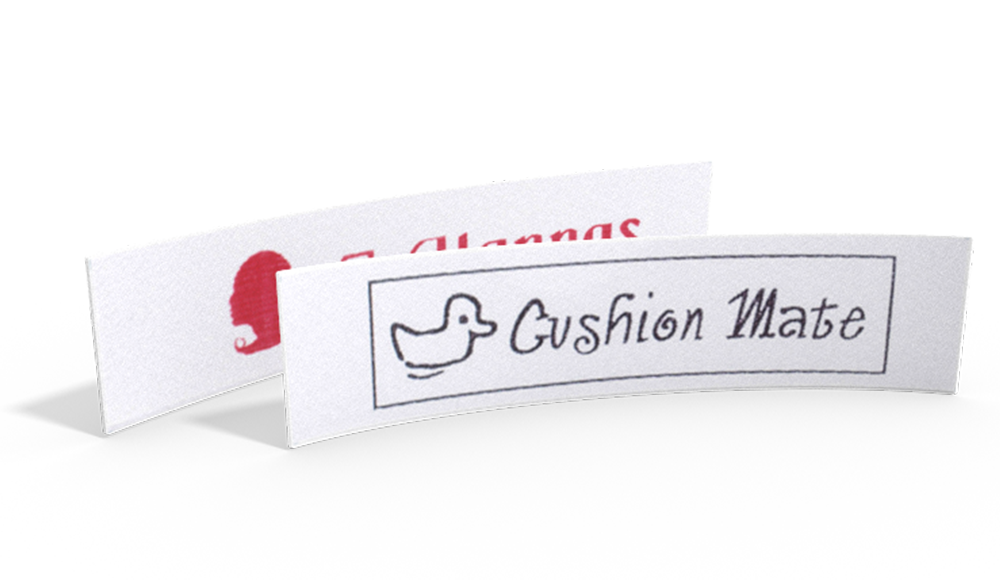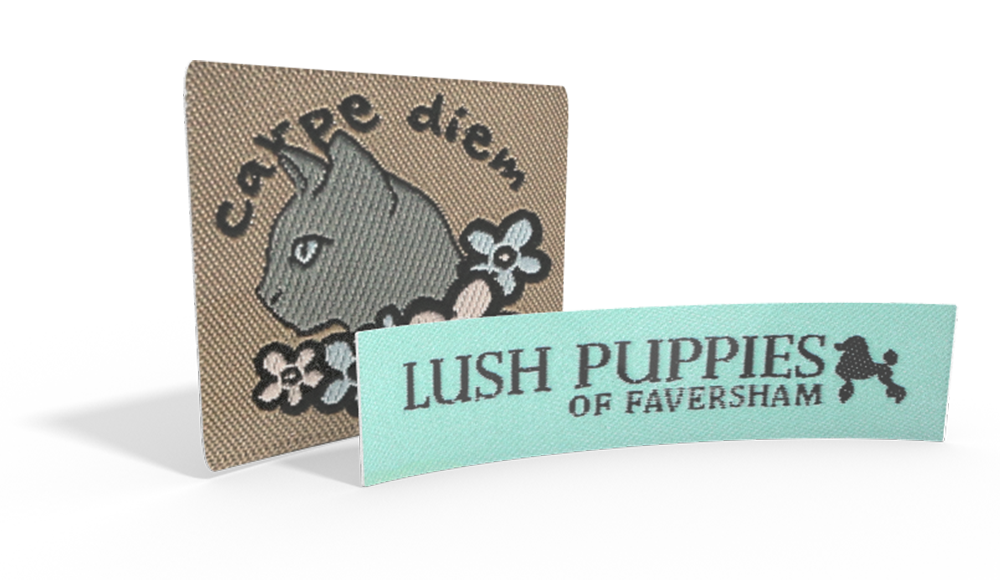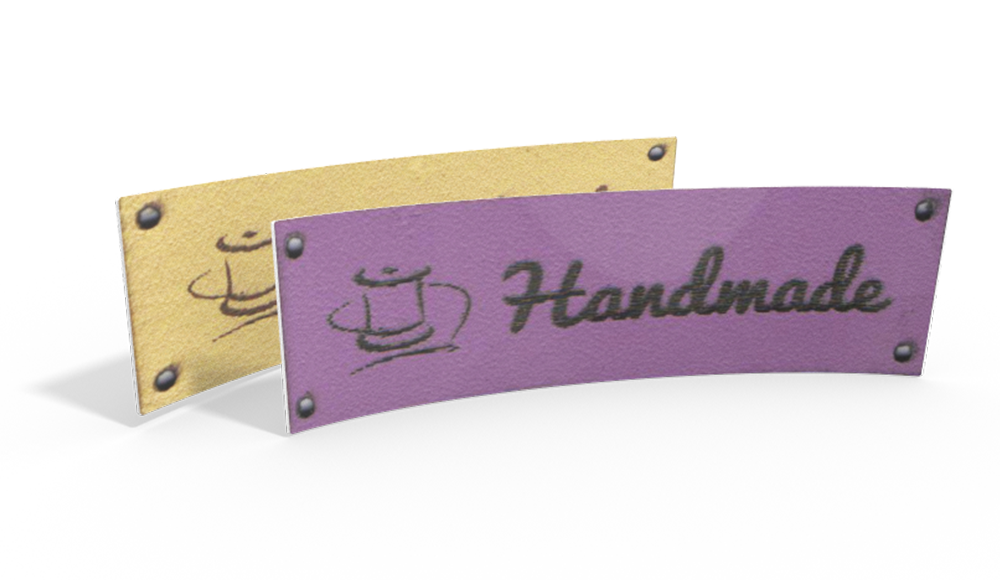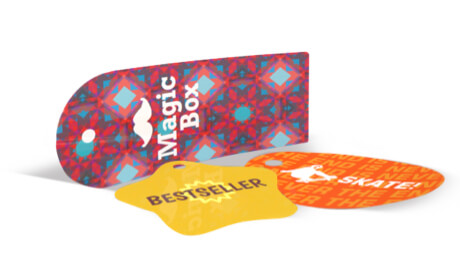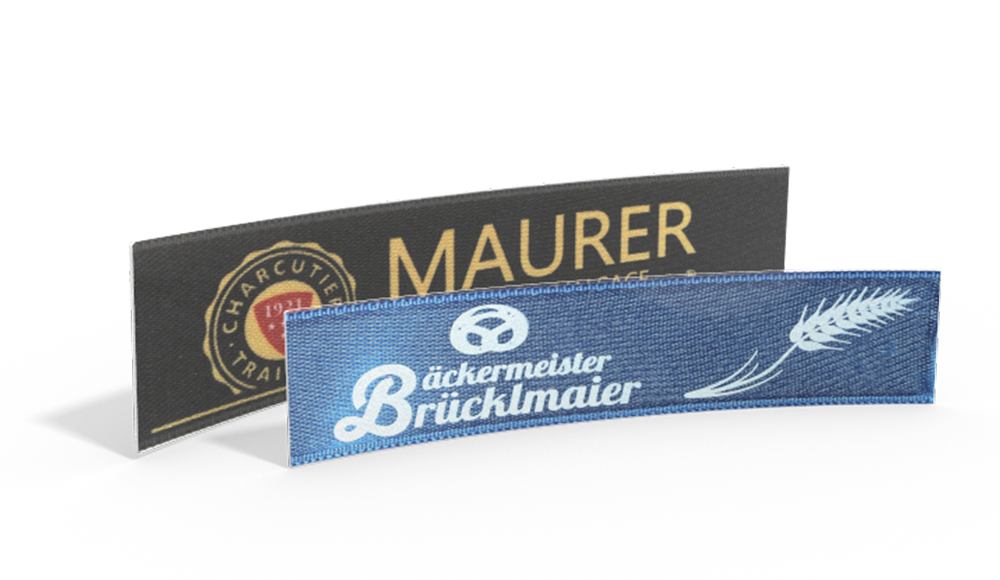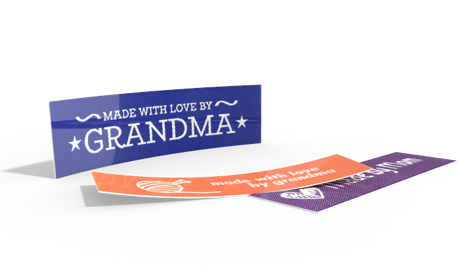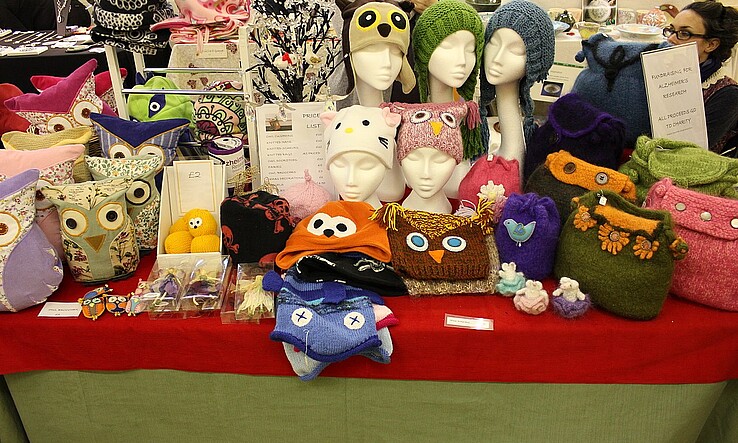"While it's great to have the internet at your fingertips, it's not the only resource you can use to sell your handmade crafts."
While it's great to have the internet at your fingertips, it's not the only resource you can use to sell your handmade crafts. Sometimes, it's a lot easier to tap into a local market. But where do you start? How do you stand out from the crowd? And what do you do when there are no craft shows scheduled for months? Why, you check out this comprehensive list of local selling locations, of course!
Discover all the possibilities with Wunderlabel! >>
1. Craft Shows and Fairs
When it comes to selling your crafts locally, these are probably the first spots that come to mind. Craft shows are great because you know that everyone who turns up is looking for fantastic handmade items and all you've got to do is show yours off to their best. Right? Well, sort of. Craft shows can be tricky. How big is it? How well established? How is it advertised? Are there other vendors selling items like yours? These are all factors out of your control, so while you might put your best foot forward with an amazing booth full of awesome items, maybe the show's poor marketing means there aren't enough customers to make it worth your while. That doesn't mean you should never do craft shows—they can be tons of fun and an awesome opportunity to get your business out there. But don't limit yourself to just one avenue of local sales.
2. Art Galleries
Not every type of craft is suitable for an art gallery, but keep an eye out for shows that might suit your work. Working with a gallery is different from selling on your own—it's more like working with a consignment shop, because the gallery gets a cut of each sale, and has some say in what you can display, how you can display it, and for how long. Alternatively, some galleries allow you to rent out space to display your wares with less oversight; depending on the agreement, these galleries may or may not take a cut of your sales.
3. Consignment Shops
Consignment shops are a great resource for crafters. These shops accept your items for display for a certain period of time, during which any sales are split between you and the shop owner at an agreed-upon percentage. Try to find consignment shops that best suit your items. Some focus on vintage wares, some on formal clothes, some on housewares, and so on. Make sure you always collect your unsold items on time! Many consignment contracts include a clause transferring ownership of unclaimed items to the shop.
4. Festivals
Many festivals now include handmade markets, which can get incredibly high traffic volume depending on the size of the festival overall. Like regular craft shows, they're subject to the whims of weather and planning committees, but if you play your cards right, these can be fantastic events for handmade artists, especially if your wares match the festival theme or general aesthetic.
5. Farmers' Markets
Farmers' Markets tend to be friendly local events, and many play host to makers as well as farmers. They have the benefit of being regularly scheduled, unlike one-off craft shows, so you can encourage repeat customers. Make sure your setup is easy to assemble and transport so you don't spend lots of valuable time each week preparing and cleaning up after a market event.
6. Local Clothing & Accessory Shops
If you make wearables or accessories, it's a logical step to start working with the local boutiques that sell these types of items. This might be a consignment relationship, but most retailers will prefer wholesale terms, which means they buy your items outright and then resell them. There are a few important things to remember about wholesale relationships. First, you need to make sure your pricing structure works. You need to make a profit on your items while still leaving room for retailers to make their own money. That's why many pricing calculators recommend doubling your wholesale pricing to get your recommended retail price. Second, you need to be able to keep up with demand. Wholesale orders are much larger than the single items other customers might buy. Check out our handy infographic on scaling up production for clothing manufacturing!
7. Art Collaboratives
Art collaboratives combine the informality of a consignment shop with the art focus of a gallery. They use the same kind of consignment payment plan, but instead of competing with commercially made consignment items, your wares are displayed among other handmade goods. Most collaboratives are careful to curate their mix of items so that there aren't too many artisans making the same item on display at once. This does mean that your application might initially be turned down, but it can pay to be persistent!
8. Holiday Markets
If you're only going to do one craft show a year, make it a holiday market and do it right. These are some of the most profitable markets of the year, since they're often indoors and make the most of the enthusiasm of holiday shoppers. There are some particularities to doing holiday markets right, though. Check out these holiday-specific tips and tricks as you're planning for this year's events!
9. Cafes and Restaurants
Have you ever been in a cafe or restaurant where the walls were hung with paintings available for sale? There's no reason the same technique can't work for you! Not every type of craft is conducive to this sales technique, but if you make decorative items (or functional pieces with decorative value) that aren't terribly delicate, it's a great option. Opt for larger, higher value items that aren't likely to move through your inventory quickly. The cafe regulars who see it every week and fall in love with it are much more likely to take the plunge and make a purchase than craft show visitors who glance your way as they walk by. There's one other factor to remember about cafe and restaurant sales. You need to make sure your items are clearly labeled, preferably with integrated labels rather than something like a hang-tag or placard that can be removed or misplaced. Even if you make no sales, if your products are clearly branded as yours, you'll at least get the benefit of exposure to your local audience.
10. Staged Homes
If you make handmade housewares, like quilts, pillows, curtains, or artwork, see if local realtors/home staging companies might be willing to work with you! While most of the items they use are rented or belong to a company stock of decor, they might be willing to include some of your items in their displays. The key will be to also provide the company with a small catalog of your items which can be handed out to potential buyers, in case they're interested in keeping any of the items they saw on display. While it's not a particularly active sales technique, it might be a good way to get your name out there, especially with interior decorators and new homeowners in your area.
11. Shopping Parties
If it worked for Tupperware and Avon, why not for you? Invite friends and family to a shopping party and encourage them to browse your wares. If you aren't comfortable inviting your own friends and family, offer to split a portion of the evening's proceeds with a host. A host doesn't need to be a single person; an organization like a book club, church group, or charity society can host a shopping party as a fundraiser or social event. Just make sure to remember what your margins are, and don't offer terms that prevent you from making a profit. Similarly, remember that even when your guests are friends and family, you only make so much on each item. Give out those friends-and-family discounts judiciously!
12. Gift Shops
The great thing about selling through local gift shops, whether on consignment or through a wholesale arrangement, is the sheer variety of items on offer. Gift shops cater toward people of all tastes and preferences, so whether you make upcycled soft toys or embroidered wall hangings, you'll often find a place for your wares. The only exception, not surprisingly, are specialty items or those that are highly customized—things like bridal-wear, tailored clothing, window treatments, and special occasion items like christening gowns are best reserved for specialty shops.
13. Craigslist
It may not have the most sparkling reputation, but selling and advertising on Craigslist can be a good option, especially if your preferred skill set is in services like tailoring and alterations rather than specific goods—it's tricky to do a craft show for alterations! Just make sure to use best practices to avoid getting scammed and keep yourself and your information safe.
14. Specialty Shops
Do you make fancy flower crowns or frilly girls' dresses? See if the local bridal shop wants to carry your items! If your specialty is quilted table runners, reach out to that high-end home goods boutique you love. Generalist retail shops are fine for some, but if your items fit a specific niche, look for specialty stores that match.
Of course, if you're selling your own handmade items, you'll need personalized branding items to go along with it!


